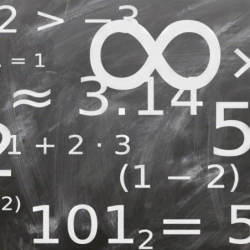
«Защитим нашу окружающую среду»
Английский язык
8 класс
Предметные результаты:
- закреплять лексику по теме: «Защита окружающей среды»;
- развивать монологическую речь: рассказывать о проблемах окружающей среды;
- развивать диалогическую речь: вести дискуссию о проблемах окружающей среды;
- учить представлять проект;
- развивать умение работать с текстом: вставлять пропущенные слова в текст;
- развивать устную речь учащихся: делать выводы по проблеме.
Метапредметные результаты:
- развитие умения планировать свое речевое и неречевое поведение;
- развитие коммуникативной компетенции;
- умение ставить перед собой цели и определять задачи, решение которых необходимо для достижения поставленных целей, планировать последовательные действия, прогнозировать результаты работы, анализировать итоги деятельности при работе с проектом;
- развитие исследовательских учебных действий, включая навыки работы с информацией (извлекать информацию из различных источников, анализировать, систематизировать, представлять различными способами);
- развитие смыслового чтения, включая умение определять тему, выделять основную мысль, главные факты, устанавливать логическую последовательность основных фактов;
- осуществление самонаблюдения, самоконтроля, самооценки в процессе коммуникативной деятельности на иностранном языке.
Личностные результаты:
- формирование мотивации изучения иностранных языков;
- осознание возможностей самореализации средствами иностранного языка;
- стремление к совершенствованию собственной речевой культуры в целом;
- формирование коммуникативной компетенции;
- готовность отстаивать национальные и общечеловеческие ценности, свою гражданскую позицию;
I. Орг. момент.
Good day, friends! I am glad to see you!
II. Сообщение темы урока.
Today we have the sitting of the parliament. You are deputies. We discuss the problems of the environment: Why throw away? Why not recycle?
III. First, we prepare for our sitting.
(Фонетическая зарядка).
Repeat the words from ex.38, page 50.
IV. Речевая зарядка.
Read the words and translate (2 человека у доски читают слова и переворачивают карточку)
Make up the signs (учащиеся составляют знак, обозначающий «переработка»).
What do these signs mean?
This sign means that the things can be recycled.
This sign means that the thing is made from recycled materials.
V. Our sitting begins. I offer the speaker of parliament Rozhkov Nikita. Nikita will hold the sitting. Take your place, please.
VI. Монологическая речь.
Nikita: We discuss the problems of environment. Who wants to speak? Take the place at the tribune. Look at the screen. (Учащиеся рассказывают о проблемах окружающей среды по картинкам на экране).
It’s wonderful world we live in! But now human being are killing our planet.
Millions of animals die every year because man polluted their natural homes and kill animals.
The air is polluted by power stations and factories.
Some of our rivers are empty of fish.
Every year people cut down more trees, build more roads.
People cut down the trees because they need wood and paper or new places for farms and houses.
There is a lot of litter on the beaches.
Pollution is very dangerous.
People pollute themselves with cigarettes, alcohol and junk food.
We live among litter and waste which we have created ourselves.
VII. Представление проектов.
1) Alevtina Pirog and Anton Zemlyanskiy made the project. Listen to them.
- You can ask speakers and put the questions. Your questions, please.
(execise 43, page 51)
1) What can people do with rubbish instead of just throwing it away?
(We can also burn or recycle a lot of it. We can recycle most kinds of paper, glass, metal and plastic.)
2) Why is recycling important nowdays?
(It saves trees and energy and protect the environment from pollution.)
3) How much of recycling materials is actually recycled? Why so little?
(But only 4% of recyclable material is actually recycled. Recycling is expensive.)
4) Are there recycling centres in your village? (No, there is not any recycling centre in our village.) What do people usually take there? (Special cars and tracters collect domestic rubbish on Thursdays and on Fridays.)
2) Listen to other project, which was made by Karavaev Yasha and Androsov Arthem.
- Please, put your questions.
5) Is packaging necessary? Why?
(Some of this “Packaging” is necessary. It keeps food clean and fresh.)
6) Why does some packaging become litter?
(Unfortunatly, some of this packaging doesn’t reach the bins. It becomes litter instead.)
7) Why is litter so dangerous in the countryside?
(In the countryside it remains in the fields and on the roadsides. It can kill or hurt farm animals.)
8) Is litter a big problem in your village?
(Yes, litter is a big problem in our village. There is a lot of litter in Sosnovka. But nowdays litter are brought by special cars and we have less litter in the streets.)
(In our school we organize “clean-up day” to clear all the litter outside the school.)
VIII. Самостоятельная работа в парах.
1) You have papers on the tables.
Full them. You write in your copy book. You work in pairs.
2) Check up. You read and I show the correct variant.
These days people have realized how important the (1) ___ is. They read newspapers and find out that in one year a European family (2)__a lot of (3)___: about 50 kilos of paper and about 60 (4)_____. Some people throw away(5)___ , plastic packaging,(6)_____their cigarette packets without a thought. But many kinds of (7)____can be still useful. Most kinds of (8)_____and (9)_____, metal, plastic can be (10)______ .
domestic rubbish, recycled, wastes, throws away, drop, cans of food, environment, glass, paper, kilos of plastic
environment
throws away
domestic rubbish
kilos of plastic
cans of food
drop
wastes
paper
glass
recycled
IX. Now we must take our decision: What should people do to protect nature?
To solve ecological problems people should/shouldn’t
X. Итог урока.
1) You vote.
You have yellow stick papers.
If you like the lesson, you will vote for.
If you don’t like the lesson, you will vote against.
2) The sitting is over.
3) Teacher: I give you marks.
The homework for you p. 57, ex.17 (write)


















